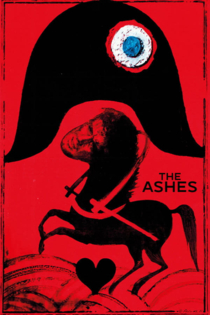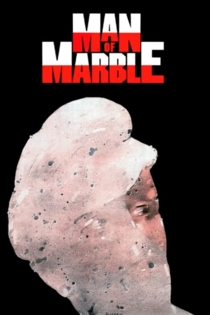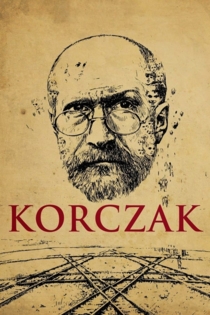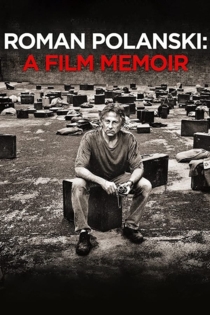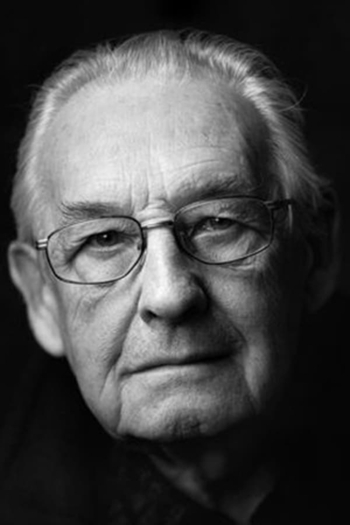
Andrzej Wajda
1926 - 2016Andrzej Wajda (born 6 March 1926) was a Polish film director. Recipient of an honorary Oscar, he was possibly the most prominent member of the unofficial "Polish Film School" (active circa 1955 to 1963). He was known especially for a trilogy of war films: A Generation (1954), Kanał (1956) and Ashes and Diamonds (1958).
Four of his movies were nominated for the Academy Award for Best Foreign Language Film: The Promised Land (1975), The Maids of Wilko (1979), Man of Iron (1981), and Katyń (2007).
He passed away in 2016 at the age of 90.
Description above from the Wikipedia article Andrzej Wajda, licensed under CC-BY-SA, full list of contributors on Wikipedia.
Kanal
Andrzej Wajda
Teresa Iżewska, Tadeusz Janczar
During the last few days of the Warsaw Uprising following World War II, a modest group of Resistance members remains. The band must take refuge in the sewers under the orders of leader Zadra, but it's only a matter of time before they will have to emerge. However, when they try, they are met only with intense hostility from the Nazis. Despite their attempts stay resolute through immense mental strain, it becomes increasingly apparent that they may be doomed.
Kanal
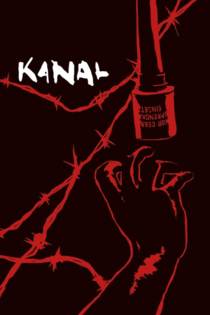
The Promised Land
Andrzej Wajda
Daniel Olbrychski, Wojciech Pszoniak
The Polish film based on the book of the same name by Wladyslaw Reymont. Taking place in the nineteenth century town of Łódź, Poland, three friends want to make a lot of money by building and investing in a textile factory. An exceptional portrait of rapid industrial expansion shown through the eyes of one Polish town.
The Promised Land
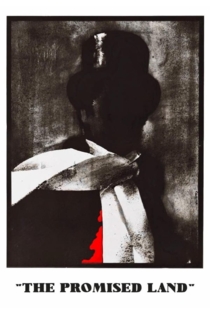
Um Filme de Cinema
Walter Carvalho
Ariano Suassuna, Ruy Guerra
An abandoned tumbledown theater in the outback of Paraíba state is the initial setting of a film about cinema, which explores the testimonials of the novelist and playwright Ariano Suassuna and other filmmakers such as Ruy Guerra, Julio Bressane, Ken Loach, Andrzej Wajda, Karim Ainouz, José Padilha, Hector Babenco, Vilmos Zsigmond, Béla Tarr, Gus Van Sant and Jia Zhangke. They all respond to two basic questions: why do they make movies and why do they serve the seventh art. The filmmakers share their thoughts about time, narrative, rhythm, light, movement, the meaning of tragedy, the audience‘s desires and the boundaries with other forms of art.
About Cinema
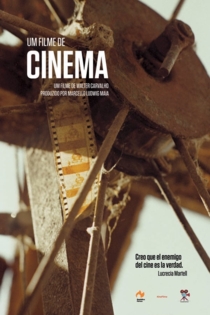
Ashes and Diamonds
Andrzej Wajda
Zbigniew Cybulski, Ewa Krzyżewska
A young academy soldier, Maciek Chelmicki, is ordered to shoot the secretary of the KW PPR. A coincidence causes him to kill someone else. Meeting face to face with his victim, he gets a shock. He faces the necessity of repeating the assassination. He meets Krystyna, a girl working as a barmaid in the restaurant of the "Monopol" hotel. His affection for her makes him even more aware of the senselessness of killing at the end of the war. Loyalty to the oath he took, and thus the obligation to obey the order, tips the scales.
Ashes and Diamonds
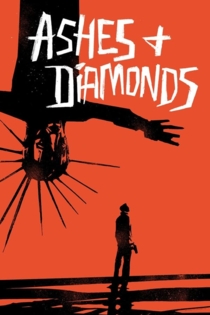
Danton
Andrzej Wajda
Gérard Depardieu, Wojciech Pszoniak
Danton and Robespierre were close friends and fought together in the French Revolution, but by 1793 Robespierre was France's ruler, determined to wipe out opposition with a series of mass executions that became known as the Reign of Terror. Danton, well known as a spokesman of the people, had been living in relative solitude in the French countryside, but he returned to Paris to challenge Robespierre's violent rule and call for the people to demand their rights. Robespierre, however, could not accept such a challenge, even from a friend and colleague, and he blocked out a plan for the capture and execution of Danton and his allies.
Danton

Young Girls of Wilko
Andrzej Wajda
Daniel Olbrychski, Anna Seniuk
Set in the late '20s. A thirtyish young man, who heads a small factory, faints at the funeral of a close friend. He decides to go home to his aunt and uncle for a while, but gets involved with a family of five women who had been in love with him at one time though he had apparently loved only one, who, unknown to him, has died since his departure. The women are mainly disillusioned with life or estranged from husbands while the youngest has a crush on him.
Young Girls of Wilko
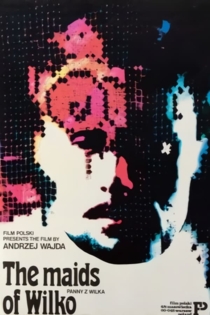
Bez znieczulenia
Andrzej Wajda
Zbigniew Zapasiewicz, Ewa Dałkowska
A famous Polish journalist presents a problem for the powers-that-be when he displays his full political skill and knowledge on a television show featuring questions and answers on a world conference by a panel of journalists. His enemies take away his privileges when he is away. The shock of being "unwanted" parallels a deeper disappointment in his private life: his wife has an affair with a jealous young rival, and after 15 years of marriage and two daughters wants a divorce. She offers no explanations as he tries to untie these problems himself. All the moves he makes are the wrong ones. He takes on drinking heavily with students eager to attend his seminar after discovering the class has been canceled. The journalist, once suave and commanding, is reduced to silence.
Without Anesthesia
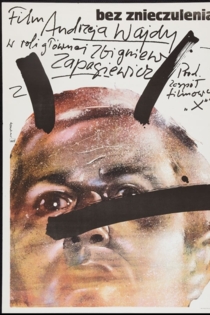
Man of Iron
Andrzej Wajda
Jerzy Radziwiłowicz, Krystyna Janda
In Warsaw in 1980, the Communist Party sends Winkel, a weak, alcoholic TV hack, to Gdansk to dig up dirt on the shipyard strikers, particularly on Maciek Tomczyk, an articulate worker whose father was killed in the December 1970 protests. Posing as sympathetic, Winkel interviews the people surrounding Tomczyk, including his detained wife, Agnieszka.
Man of Iron
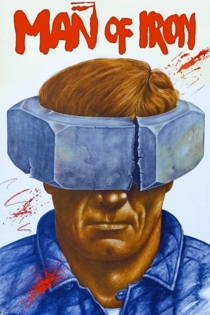
Niewinni czarodzieje
Andrzej Wajda
Krystyna Stypułkowska, Wanda Koczeska
A young doctor is tired of being sought by women. One night he meets a young girl who all but forces herself into his room where they talk of morals and love. But he loses her when he goes out to see some friends and then rushes madly around the city after her.
Innocent Sorcerers
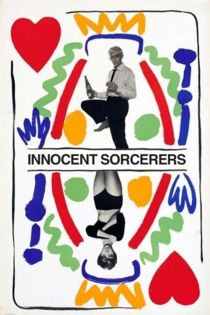
Love at Twenty
François Truffaut, Shintarô Ishihara
Jean-Pierre Léaud, Marie-France Pisier
Love at Twenty unites five directors from five different countries to present their different perspectives on what love really is at the age of 20. The episodes are united with the score of Georges Delerue and still photos of Henri Cartier-Bresson.
Love at Twenty
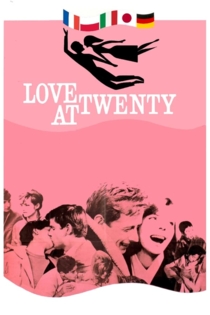
Umarla klasa
Andrzej Wajda
Tadeusz Kantor, Maria Kantor
The Dead Class (1975), by Tadeusz Kantor and the Cricot 2 company, is considered one of the most innovative and influential works of twentieth-century theatre. The breakthrough first version of the production - performed to great critical acclaim, but only rarely seen live by audiences outside Poland - was documented on film in 1976 by the Oscar-winning director Andrzej Wajda.
The Dead Class
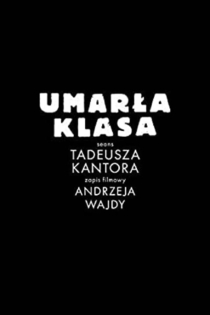
Pokolenie
Andrzej Wajda
Tadeusz Łomnicki, Urszula Modrzyńska
Stach is a wayward teen living in squalor on the outskirts of Nazi-occupied Warsaw. Guided by an avuncular Communist organizer, he is introduced to the underground resistance—and to the beautiful Dorota. Soon he is engaged in dangerous efforts to fight oppression and indignity, maturing as he assumes responsibility for others’ lives. A coming-of-age story of survival and shattering loss, A Generation delivers a brutal portrait of the human cost of war.
A Generation
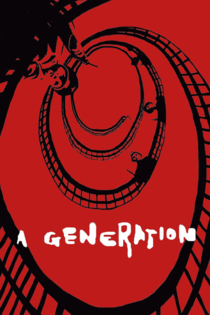
The Ashes
Andrzej Wajda
Daniel Olbrychski
Set in the time of Napoleon wars, shows how the wars swept over the unfortunate Polish country at the beginning of the XIX-th century. Story revolves around the Polish legion under command of General Dabrowski, who then fought on Napoleon's side with the hopes of Poland's revival.
The Ashes
